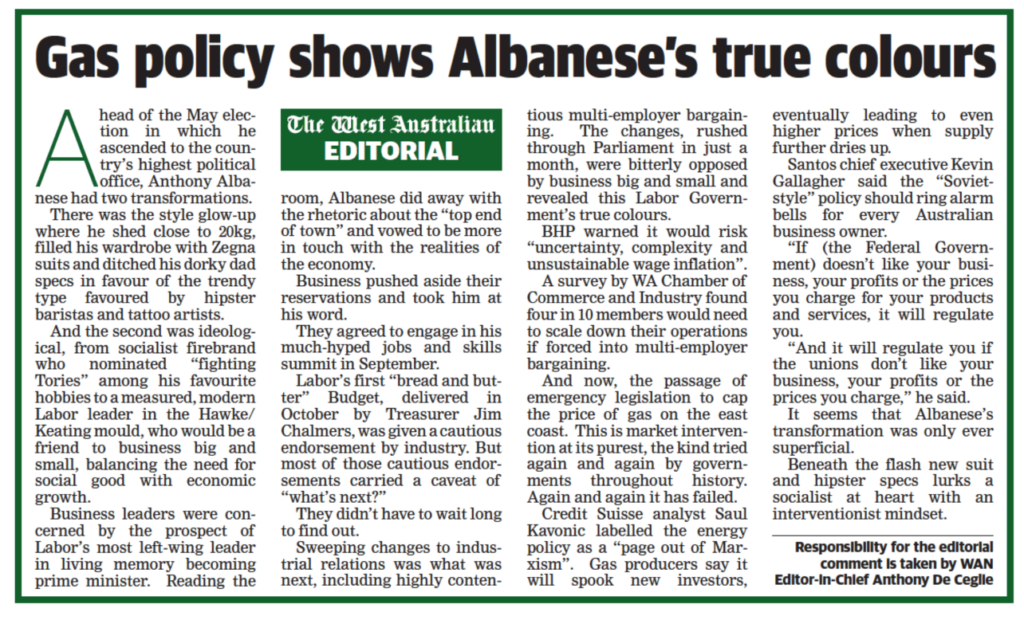
Editorial comment is taken by WAN Editor-in-Chief Anthony De Ceglie.

Ahead of the May election in which he ascended to the country’s highest political office, Anthony Albanese had two transformations.
There was the style glow-up where he shed close to 20kg, filled his wardrobe with Zegna suits and ditched his dorky dad specs in favour of the trendy type favoured by hipster baristas and tattoo artists.
And the second was ideological, from socialist firebrand who nominated “fighting Tories” among his favourite hobbies to a measured, modern Labor leader in the Hawke/ Keating mould, who would be a friend to business big and small, balancing the need for social good with economic growth.
Business leaders were concerned by the prospect of Labor’s most left-wing leader in living memory becoming prime minister. Reading the room, Albanese did away with the rhetoric about the “top end of town” and vowed to be more in touch with the realities of the economy.
Business pushed aside their reservations and took him at his word.
They agreed to engage in his much-hyped jobs and skills summit in September.
Labor’s first “bread and butter” Budget, delivered in October by Treasurer Jim Chalmers, was given a cautious endorsement by industry. But most of those cautious endorsements carried a caveat of “what’s next?”
They didn’t have to wait long to find out.
Sweeping changes to industrial relations was what was next, including highly contentious multi-employer bargaining. The changes, rushed through Parliament in just a month, were bitterly opposed by business big and small and revealed this Labor Government’s true colours.
BHP warned it would risk “uncertainty, complexity and unsustainable wage inflation”.
A survey by WA Chamber of Commerce and Industry found four in 10 members would need to scale down their operations if forced into multi-employer bargaining.
And now, the passage of emergency legislation to cap the price of gas on the east coast. This is market intervention at its purest, the kind tried again and again by governments throughout history. Again and again it has failed.
Credit Suisse analyst Saul Kavonic labelled the energy policy as a “page out of Marxism”. Gas producers say it will spook new investors, eventually leading to even higher prices when supply further dries up.
Santos chief executive Kevin Gallagher said the “Sovietstyle” policy should ring alarm bells for every Australian business owner.
“If (the Federal Government) doesn’t like your business, your profits or the prices you charge for your products and services, it will regulate you.
“And it will regulate you if the unions don’t like your business, your profits or the prices you charge,” he said.
It seems that Albanese’s transformation was only ever superficial.
Beneath the flash new suit and hipster specs lurks a socialist at heart with an interventionist mindset.














